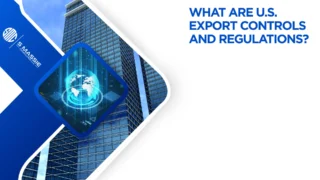The Espionage Incident Unveiled
Let’s explore the captivating tale of espionage that recently made international headlines. We will delve into the intricate details of the spy’s actions, shedding light on the potential repercussions such activities can have on a nation’s security. By understanding the real-world implications of espionage, we gain a deeper appreciation for the importance of robust regulatory frameworks like ITAR.
Understanding ITAR Regulations
To comprehend the significance of ITAR regulations, we must first gain a thorough understanding of their purpose, scope, and historical context. In this section, we will provide an in-depth overview of ITAR, elucidating its origins and evolution. By grasping the fundamental principles underlying ITAR, we lay the groundwork for comprehending its role in national security.
ITAR’s Role in National Security
The preservation of national security is of paramount importance for any sovereign state. ITAR regulations play a pivotal role in achieving this objective by effectively controlling the export of defense-related items and technologies. In this section, we will explore how ITAR ensures the protection of sensitive defense-related information, prevents unauthorized access to critical technologies, and mitigates potential threats to a nation’s security.
The Importance of Compliance with ITAR
Compliance with ITAR regulations is not merely a legal requirement; it is an essential element of responsible business practices within the defense industry. In this section, we will outline the reasons why compliance with ITAR is of utmost importance. From avoiding legal consequences and maintaining a competitive edge to preserving national interests and upholding ethical standards, there are numerous compelling motivations for strict adherence to ITAR regulations.
Facilitating International Collaboration through ITAR
In an increasingly interconnected world, international collaboration is vital for addressing global challenges and fostering diplomatic relations. ITAR regulations are designed to strike a delicate balance between the need for security and the imperative of sharing defense-related information across borders. In this section, we will explore how ITAR facilitates international collaboration while safeguarding national security interests.
The Consequences of Non-Compliance with ITAR
Non-compliance with ITAR regulations can have severe repercussions for individuals, organizations, and even entire nations. In this section, we will delve into the legal and financial consequences of violating ITAR, emphasizing the potential damage to an organization’s reputation, loss of export privileges, hefty fines, and even criminal charges. By understanding the consequences of non-compliance, stakeholders gain a strong incentive to prioritize adherence to ITAR regulations.
Advancements in ITAR Technology and their Impact
Technology continues to evolve at an astonishing pace, reshaping the landscape of security and defense. ITAR regulations must adapt to keep pace with these advancements. In this section, we will discuss the latest technological developments in the context of ITAR, including improved encryption techniques, secure communication channels, and advanced monitoring systems. These advancements play a crucial role in bolstering the effectiveness and efficiency of ITAR compliance.
ITAR and the Future of Security
Looking ahead, we must anticipate the challenges and opportunities that lie on the horizon of global security. In this section, we will examine the evolving landscape of security threats, technological advancements, and geopolitical shifts. By envisioning the future, we can better understand how ITAR regulations must evolve to address emerging challenges while ensuring the continuity of national security interests.
FAQs
What is the purpose of ITAR regulations?
ITAR regulations serve the crucial purpose of controlling the export and transfer of defense-related items and technologies to safeguard national security. By regulating the flow of sensitive information and technologies, ITAR helps prevent unauthorized access and potential threats.
Who needs to comply with ITAR regulations?
ITAR compliance is mandatory for individuals, organizations, and entities involved in the manufacturing, export, and transfer of defense-related items and technologies. Any entity dealing with these items, regardless of their size, must ensure compliance to avoid legal consequences.
What are the penalties for non-compliance with ITAR regulations?
Non-compliance with ITAR regulations can lead to severe penalties, including hefty fines, loss of export privileges, and potential criminal charges. Violations of ITAR are taken seriously due to the potential risks they pose to national security.
How does ITAR promote international collaboration?
ITAR regulations provide a framework for international collaboration by establishing guidelines and protocols for sharing defense-related information while maintaining security and protecting national interests. This collaboration helps build stronger alliances and enhances collective security efforts.
How does ITAR address advancements in technology?
ITAR regulations continuously evolve alongside technological advancements. By embracing new technologies and implementing robust measures, such as improved encryption and advanced monitoring systems, ITAR adapts to emerging security challenges, ensuring the effective control and protection of defense-related information and technologies.
Contact us to schedule a consultation or compliance review.






